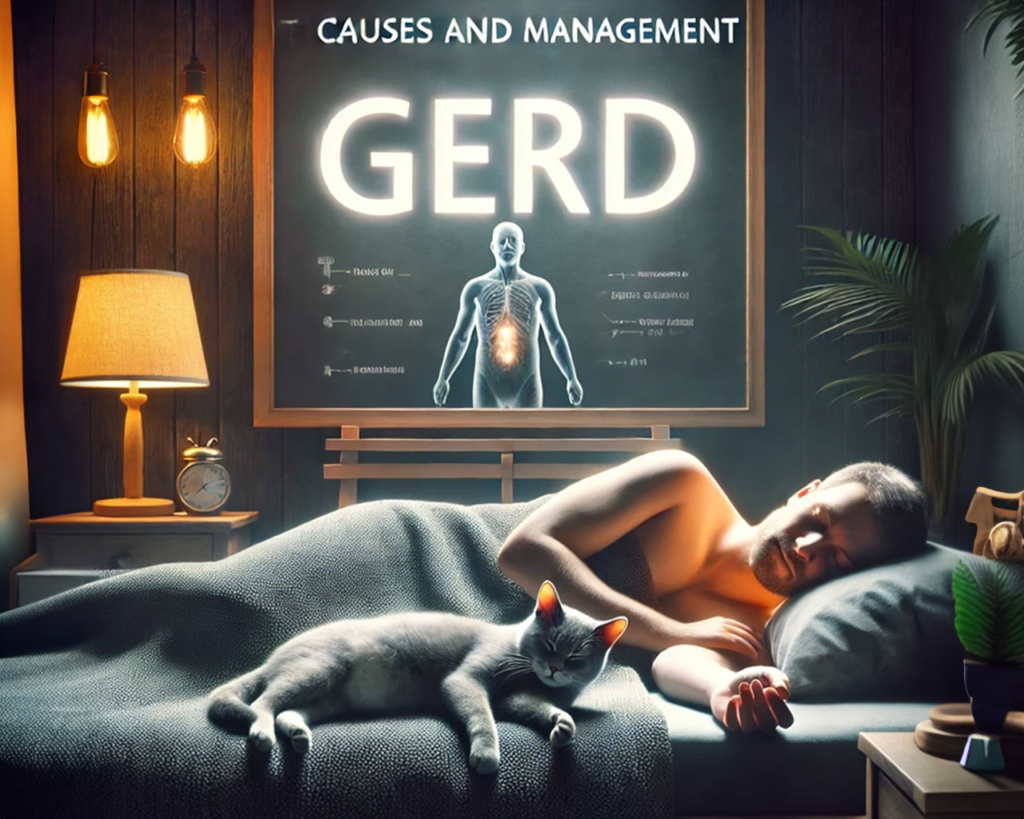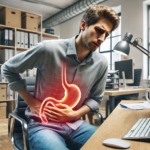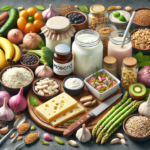What is GERD?
Gastroesophageal reflux disease (GERD), commonly known as heartburn, is a chronic digestive condition where the gastroesophageal sphincter – which is supposed to act as a one way valve between the stomach and the esophagus stops working properly allowing stomach acid to flow back into the esophagus and cause irritation. The whole thing happens because while the lining of the stomach evolved to withstand harsh acidic conditions required for digestion, the lining of the esophagus (and the rest of our bodies to be fair) did not. This backwash of acid can irritate and burn the lining of the esophagus and lead to symptoms like heartburn, chest pain, regurgitation, and indigestion.
Prevalence of GERD
- About 20 percent of people in the United States have GERD. El-Serag HB, Sweet S, Winchester CC, Dent J. Update on the epidemiology of gastro-oesophageal reflux disease: a systematic review. Gut. 2014;63(6):871-880. doi:10.1136/gutjnl-2012-304269
- About 10%-20% of patients with chronic GERD symptoms develop Barrett’s Esophagus, a precursor to esophageal adenocarcinoma. Stawinski PM, Dziadkowiec KN, Kuo LA, Echavarria J, Saligram S. Barrett’s Esophagus: An Updated Review. Diagnostics (Basel). 2023;13(2):321. Published 2023 Jan 16. doi:10.3390/diagnostics13020321
🤔 Why you need to know:
GERD Complications
If left unchecked, GERD can lead to some serious complication including difficulty swallowing, dysplasia, and cancer.
Main Causes of GERD
- Weak or Relaxed Lower Esophageal Sphincter (LES): The LES is a muscle at the junction between the esophagus and stomach. When it is weak or relaxes inappropriately, stomach acid can back up into the esophagus.
- Hiatal Hernia: A condition where the upper part of the stomach pushes through an opening in the diaphragm, which can weaken the LES and contribute to acid reflux.
- Obesity: Excess body weight can put pressure on the abdomen, pushing the stomach up and causing acid to back up into the esophagus.
- Pregnancy: Hormonal changes and increased abdominal pressure during pregnancy can cause GERD.
- Smoking: Smoking can weaken the LES and increase acid production, contributing to GERD.
- Diet: Consuming large meals, lying down immediately after eating, and eating trigger foods such as fatty or fried foods, chocolate, caffeine, alcohol, spicy foods, and acidic foods can cause GERD.
- Medications: Certain medications, including NSAIDs, certain muscle relaxers, and some blood pressure and heart medications, can contribute to GERD.
- Alcohol Consumption: Alcohol can relax the LES and increase stomach acid production.
Treatment for GERD
Managing GERD is essential to avoid complications such as esophagitis, strictures, and an increased risk of esophageal cancer. Here are some practical steps to manage GERD:
- Elevate Your Head: Raise the head of your bed by 6-8 inches to prevent nighttime reflux.
- Eat Mindfully: Avoid large meals and trigger foods like spicy, fatty, or acidic foods. Eating smaller, more frequent meals can help.
- Lifestyle Changes: Maintain a healthy weight, avoid lying down immediately after eating, and quit smoking. Avoid eating late in the evening.
- Over-the-Counter Solutions: Antacids and medications like H2 blockers or proton pump inhibitors (PPIs) can provide relief. Consult with a healthcare professional for a tailored treatment plan.
🧠 Trivia:
The first scientific article I ever wrote was actually on this topic. Check it out:




I just wanted to say how much I enjoy this article!
The insights you’ve shared are very timely for anyone
dedicated to maintaining a healthy lifestyle,
and the way you’ve explained the information is incredibly clear.
It’s exactly the kind of content people need these days when taking care of our health has become such a priority.
I’ll definitely be sharing this resource on my own blog about diets and healthy eating –
I know my readers will find it just as helpful as I did. Thanks
for sharing